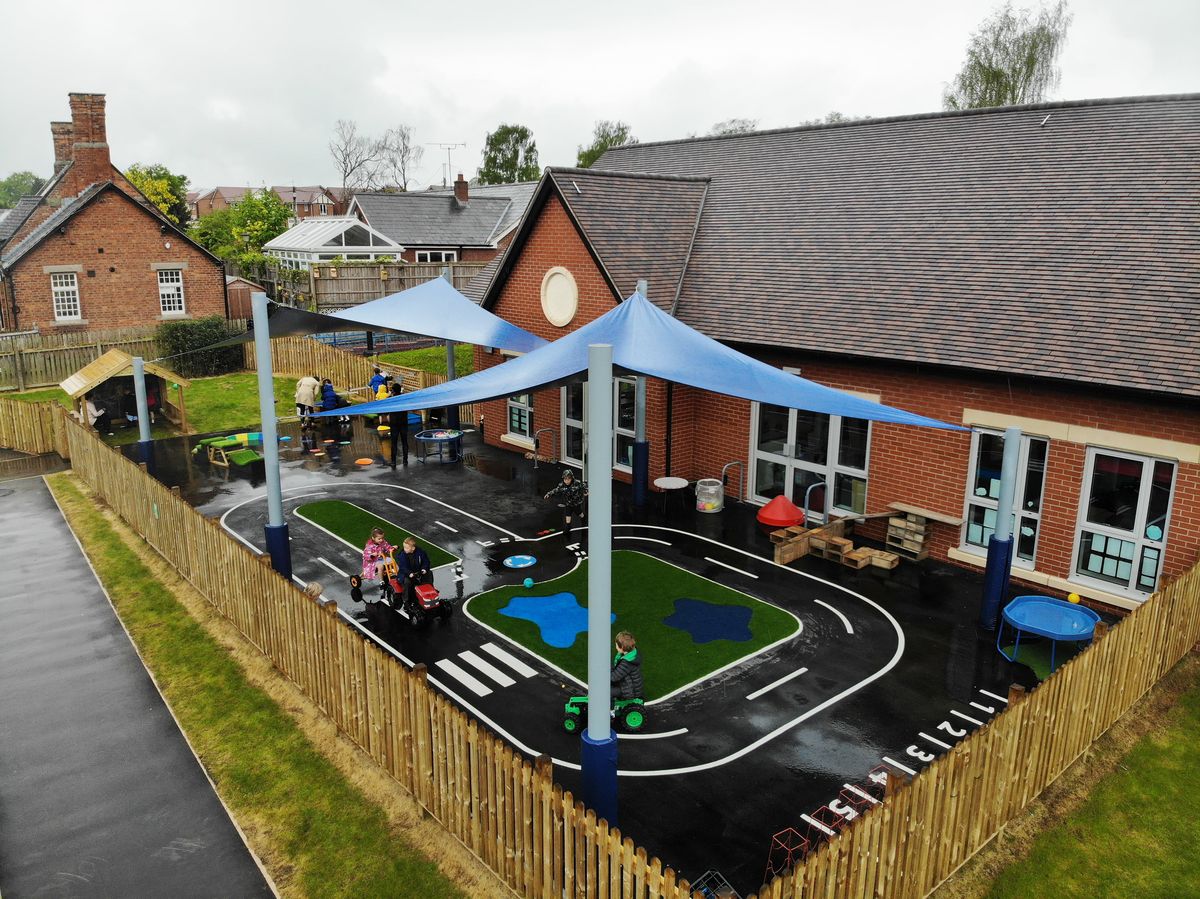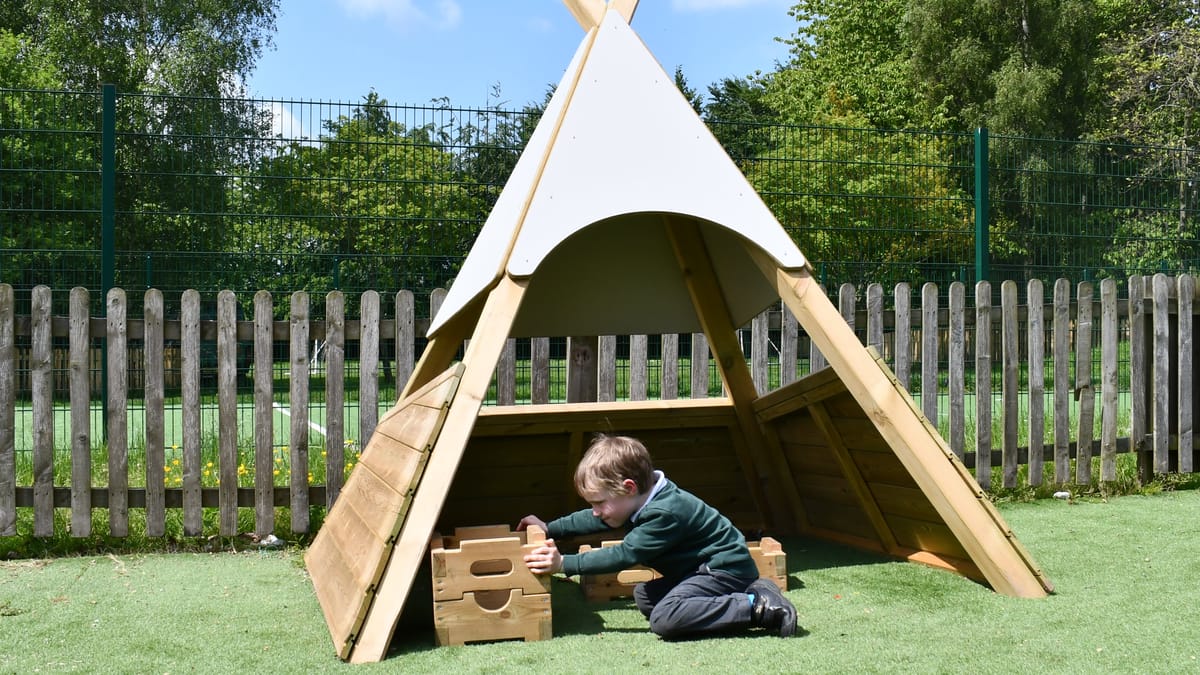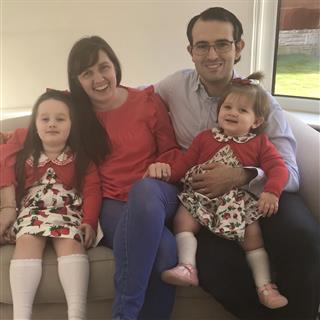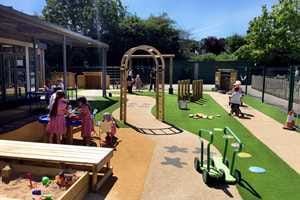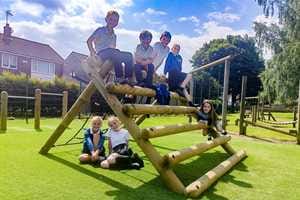
Lesson Ideas and Activities
Teaching Journeys and Transport in EYFS
‘Journeys and Transport’ is a favoured early years topic that can be easily accessed. ‘Transport’ is often a popular theme during continuous provision. Within this topic pupils can share their own experiences, use and manipulate varied resources, engage with members of the local community and enjoy learning outdoors.
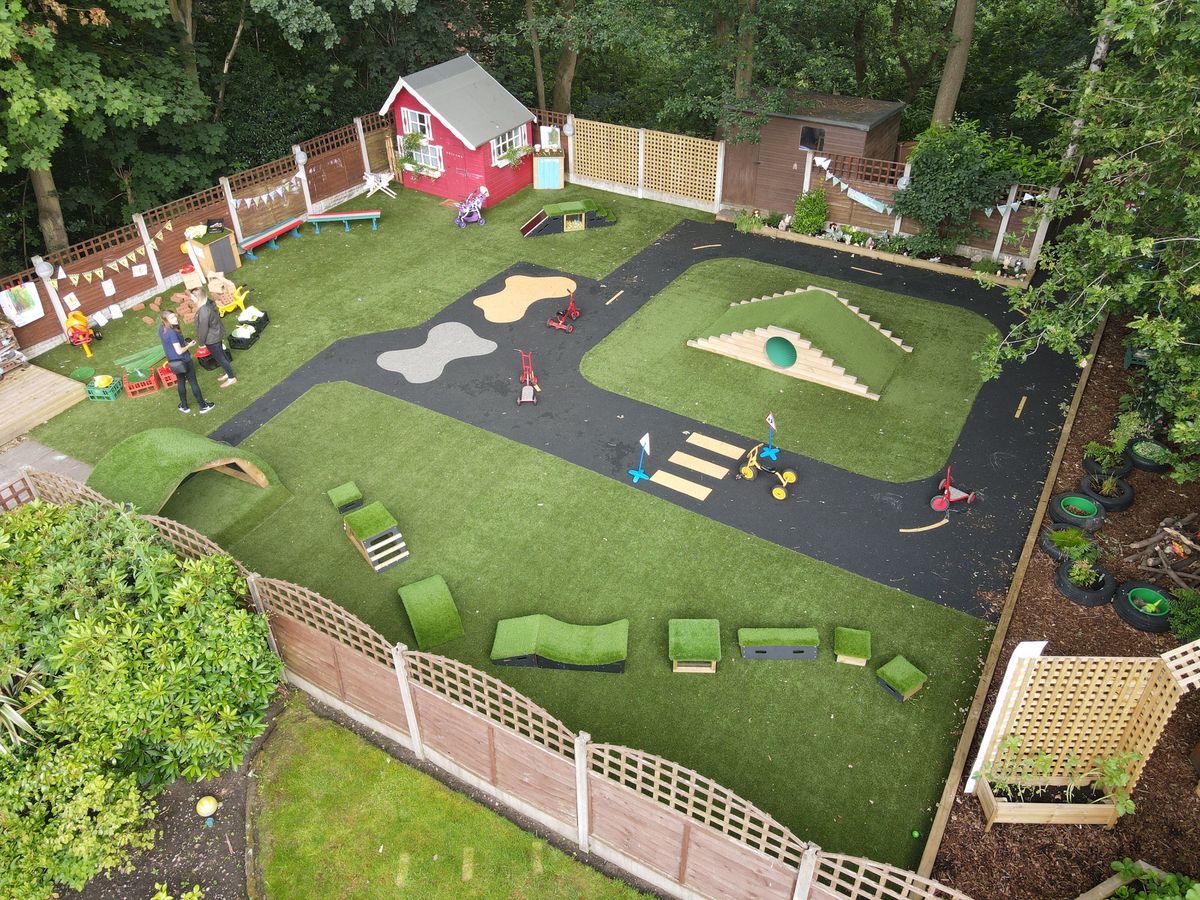
This blog gives practical teaching ideas and suggestions for early years teachers and childcare providers when planning a ‘Journeys and Transport’ topic. Bringing learning to life by including many elements of outdoor play and linking learning to real-world experiences.
Begin with the Local Area
To begin a journeys and transport topic, go for a walk around the early years outdoor setting or local area. Pupils are to sketch or take photographs of points of interest.
When consulting enlarged maps and photographs pupils can talk about the natural/man-made features where they live and discuss which environmental features they like/don’t like.
The EYFS statutory framework states that pupils should describe their immediate environment using knowledge from observation, discussion and maps.
A class book could be made where children draw and describe the places they have passed/visited on their favourite walks. Alternatively, pupils could create models of the local area using resources such as: Lego, boxes, loose parts and fabric offcuts.
Ask pupils if they can find their homes on a large map and discuss who lives the nearest/furthest from school? Students can discuss which mode of transport they use to come to school and a pictogram could be made showing the results, helping pupils to practise counting.
Explore your Early Years Outdoor Space
Using the EYFS outdoor area, make a diagram/map of the space. Pupils can plan their own routes through the space using positional and directional language such as left, right, over, under, next to etc. Ask pupils to estimate how many steps it will take them to reach a particular piece of equipment.
In order to aid fine motor development, oobleck or coloured rice can be placed in the outdoor Tuff Spot Table. Pupils can be invited to create their own journeys with their fingers in order to build finger strength.
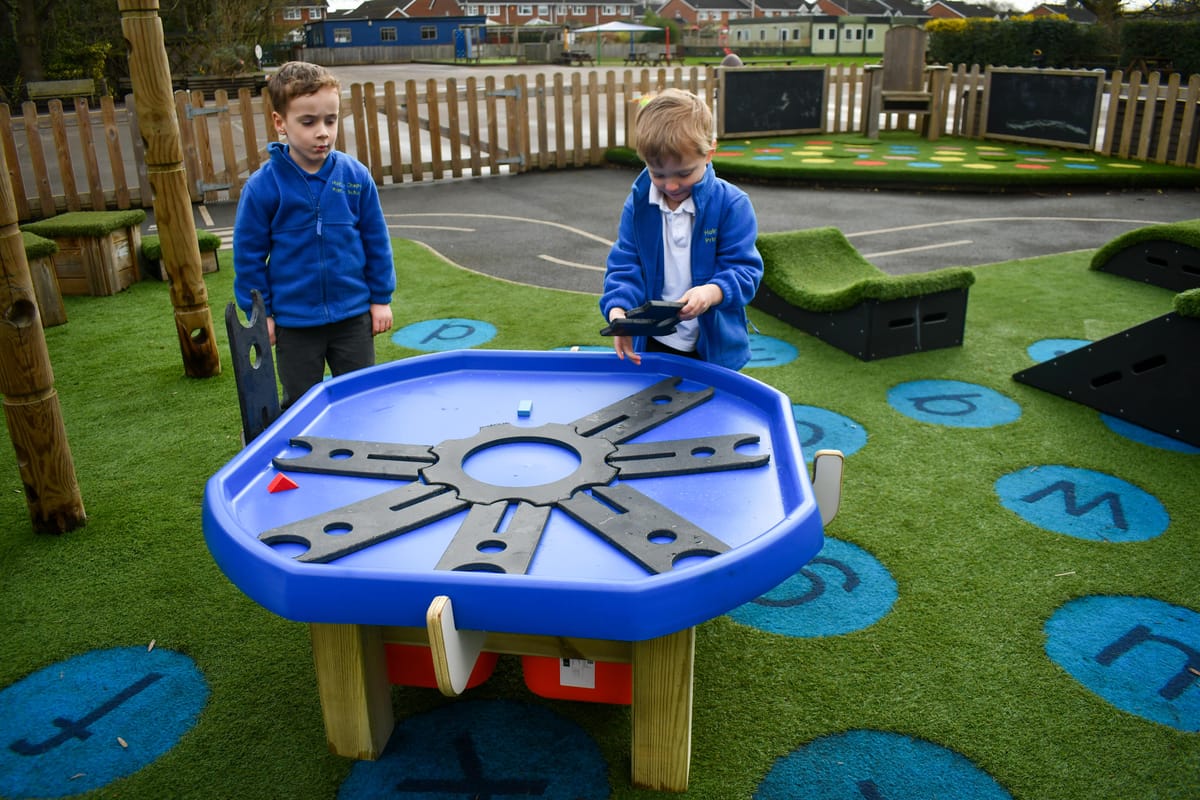
Toys and objects could be added to the tray and pupils can follow adult instructions about which direction to take.
On the Road
Discuss with EYFS pupils all the different reasons they can think of for making journeys by road. Talk about road safety issues with pupils such as how to behave near traffic, how to be seen and how to cross the road safely.
A road safety officer or school crossing patrol officer could visit class providing opportunities to listen attentively and respond appropriately.
A specifically designed Pentagon roadway with a variety of personalised road markings can be used to improve physical development and understanding of the world on a daily basis.
Children learn about road layouts, how crossings work and what traffic lights indicate. Roadways provide the perfect space for physical play where pupils can use bikes, trikes, scooters, cars and carts. Students will enjoy role playing drivers and pedestrians as they practise crossing the road safely.
A roadway also provides an exciting EYFS racetrack. Pupils can play traffic light games – Green for jog around the track, amber for skip and red for stop and balance.
A Pentagon roadway allows pupils to improve gross motor development as mentioned in the EYFS statutory framework. Pupils will learn to 'negotiate space and obstacles safely, with consideration for themselves and others.'
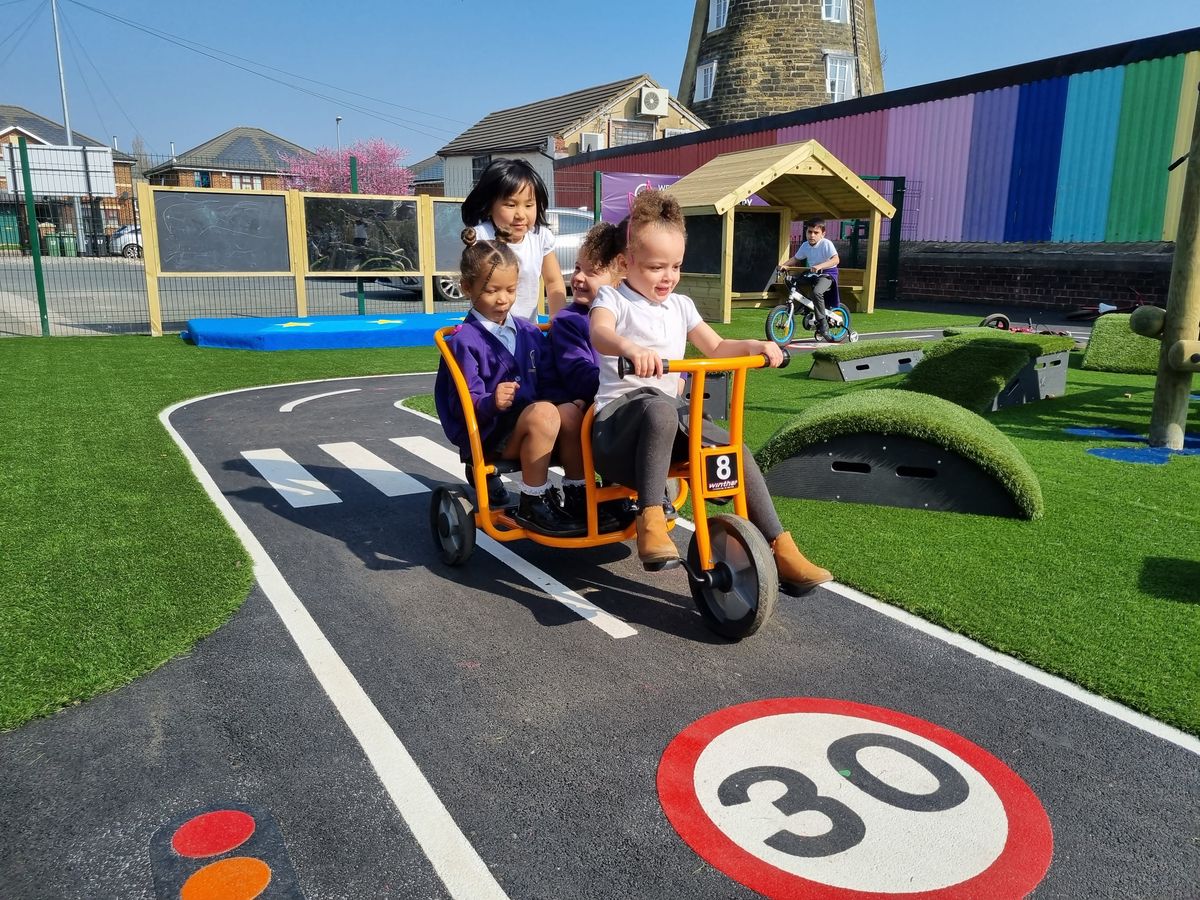
Students can be introduced to car number plates by looking at different examples. Can pupils recognise different letters and numbers? Do they know the registration of their own car?
Support pupils to make their own personalised number plates using known letters and numbers which can be attached to their toy vehicles.
Take the Train
The next stage when teaching an EYFS 'Journeys and Transport' topic may involve looking at a variety of different vehicles and allowing pupils to explore their own interests.
During circle time gather children’s experiences of train travel. Has anyone travelled on a high-speed train? Has anybody travelled underground on a tube train or through a tunnel?
Show pupils different resources such as pictures of trains and a variety of fiction and non-fiction texts. Watch ‘Thomas the Tank Engine’ and ask children to compare older steam trains to new electric trains.
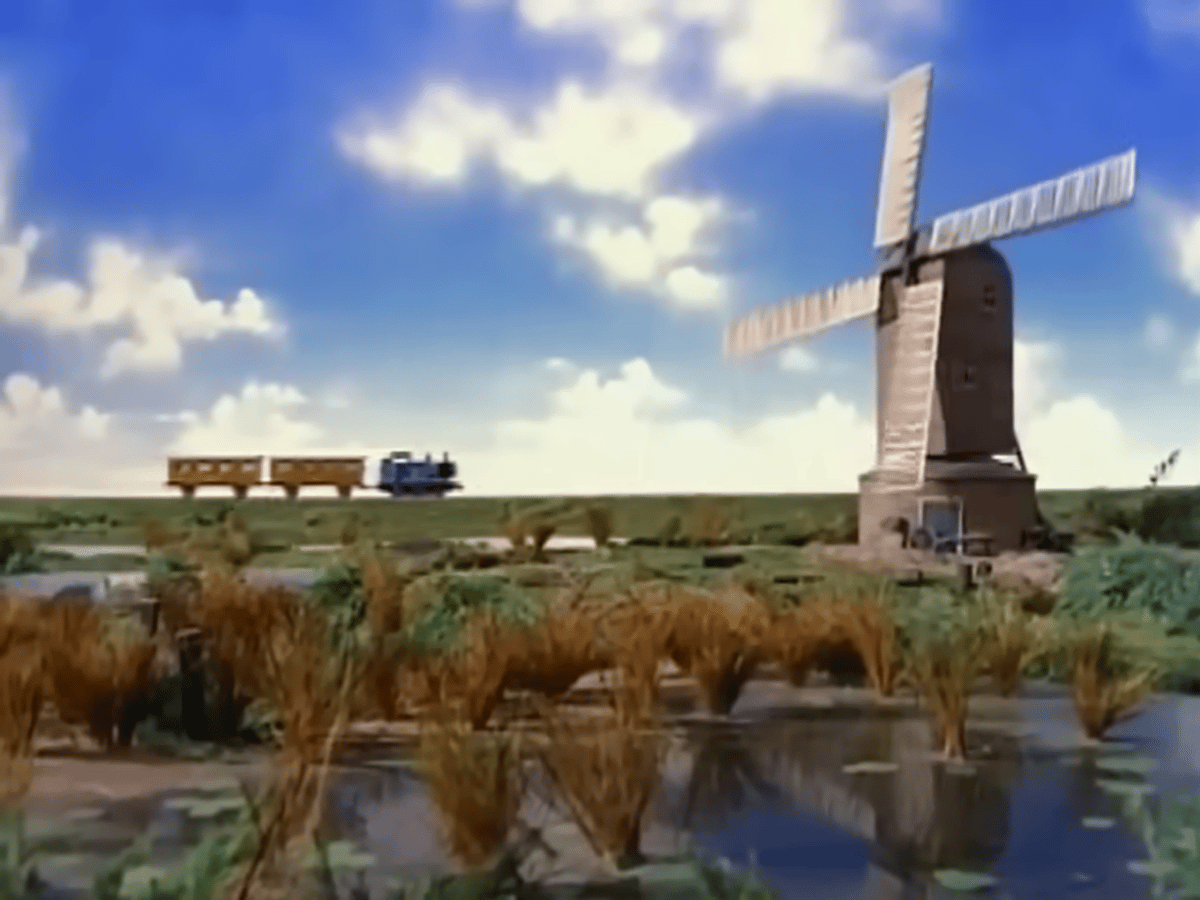
The EYFS framework expects pupils to know some similarities and differences between things in the past and now.
Some EYFS students learn best when engaged in active, physical play. A Pentagon Play Builder package such as the Engineer Set offers endless possibilities, particularly linked to a ‘Journeys and Transport’ topic.
Little ones can work together, developing their creativity and critical thinking skills to build different modes of transport. Working in groups, pupils can discover how to build their very own train to hold a driver and passengers.
Whilst some pupils are building the train, others can be gathering resources ready for playing in a Pentagon Giant Playhouse which can be transformed into a train station role play area.
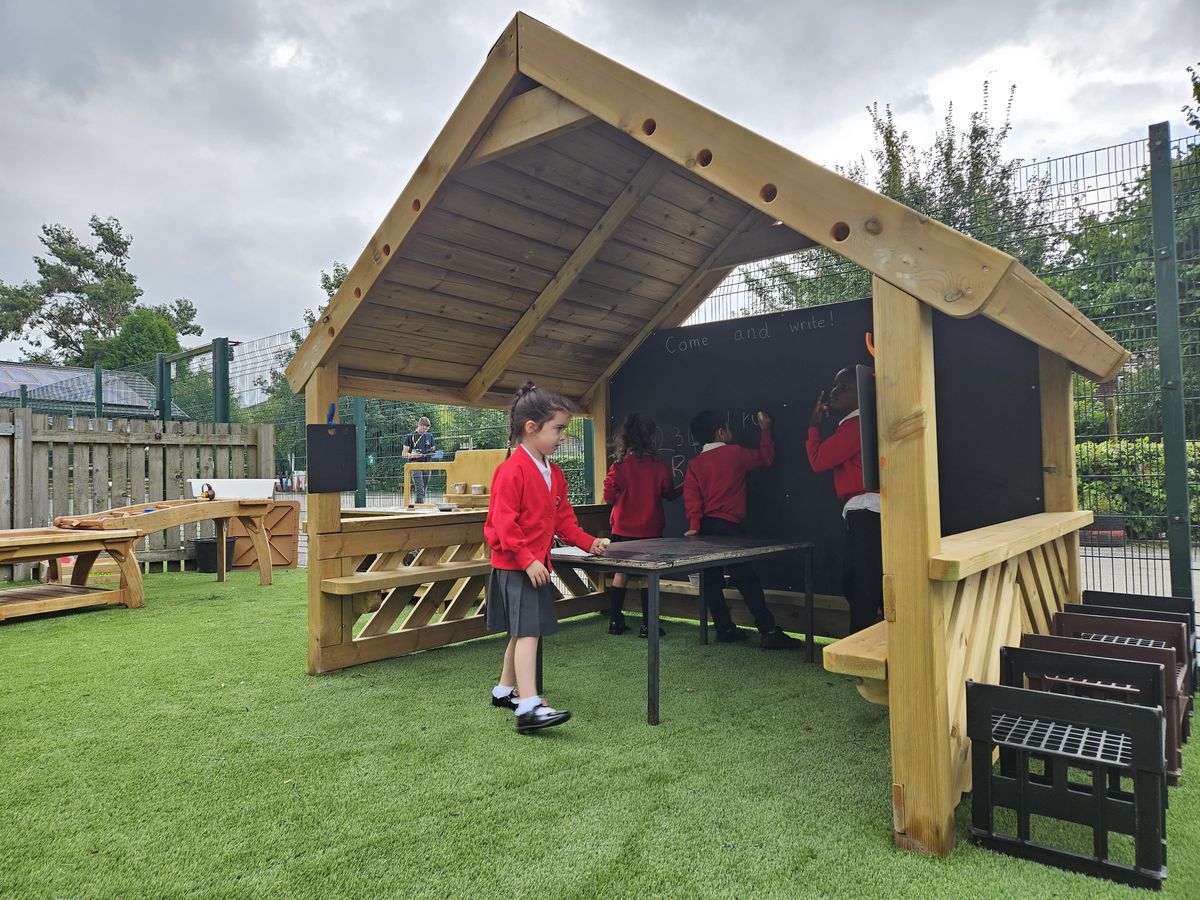
The train station can include: a departure board, train timetables, tickets and a lost property box. Children can sell train tickets and a box of dressing up clothes and props can aid understanding and help when taking on different roles.
A Mathematics Focus
Children can play simple maths games using a large dice. Practitioners can role the dice indicating how many children need to board or leave the train at each stop.
The new statutory framework emphasises the importance of pupils subitising quantities up to 5 and dice games will help to reinforce this concept. The purpose of train timetables could also be discussed and pupils could be shown a large clock to introduce them to o’clock times.
During role play children can practise reading train times and giving announcements e.g. ‘The train will leave at 3 o’clock.’ An engaging Solar Powered Stop Watch on Posts could be used to time the children completing different tasks/journeys in the outside area which links the passing of time to train timetables.
All Aboard the Boat!
A Pentagon Play Ship creates an exciting, cross-curricular themed feature, perfect for learning and physical play in the early years foundation stage. Pupils can practise their communication and language skills as they set sail by singing well-known sea related songs such as ‘A Sailor Went to Sea, Sea, Sea’ or ‘The Big Ship Sails Through the Alley, Alley O.’
.jpg)
Play Ships offer many opportunities for imaginative play. Pupils may create their own underwater journeys viewing jellyfish, mermaids, fish, shipwrecks and buried treasure on the way. Groups could create their own plays about their imagined under the sea worlds which can be performed to an audience.
Develop Super Science Skills at the Water Table
Water Tables offer a fantastic, engaging space for early years investigation. Children can find out which materials make the best boats using recyclable resources such as plastic containers, foil, wood, card and fabric.
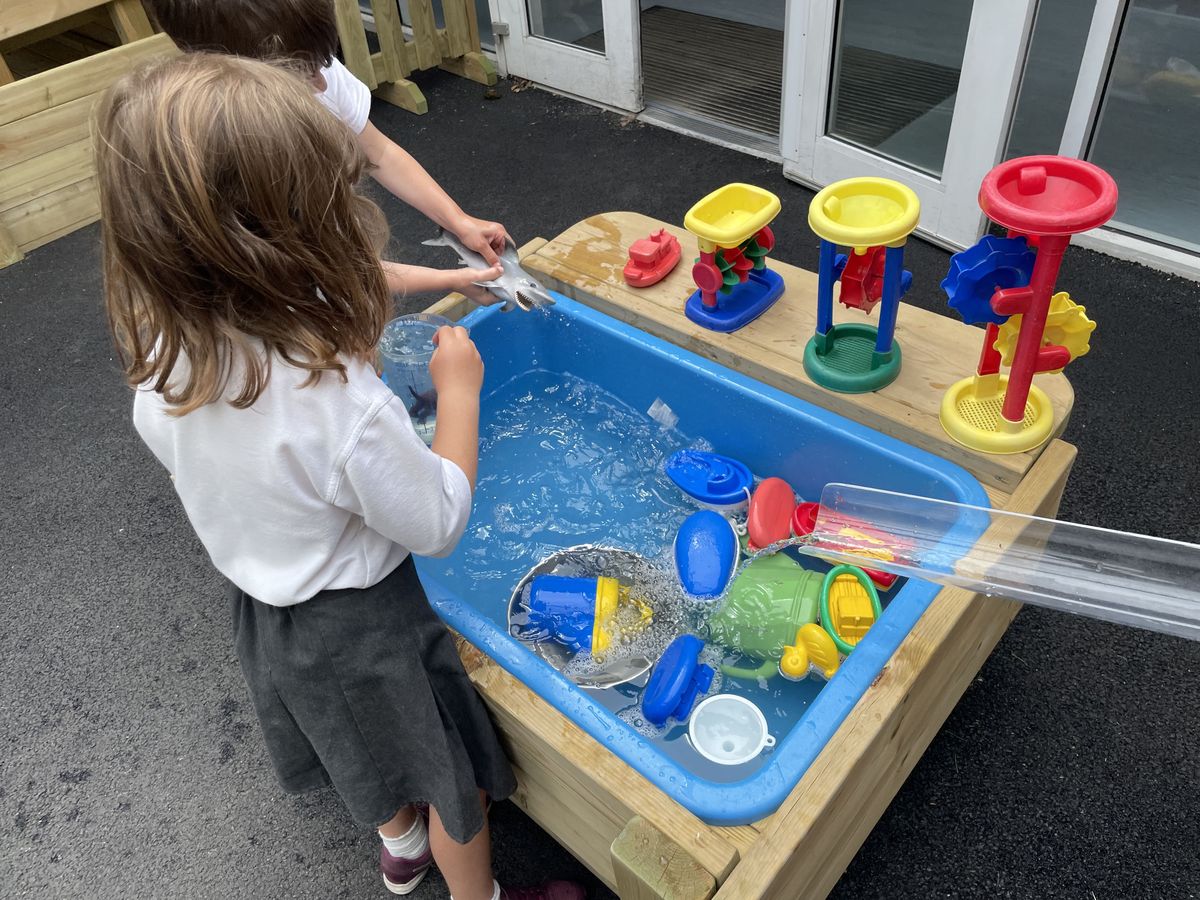
Pupils could be encouraged to make their boats move in different ways by pulling with string, making a sail to blow or by pushing down water channels.
Take to the Skies!
Talk to pupils about journeys they have made on aeroplanes. Show classes various postcards and photographs from different countries around the world. Children can make their own postcards to send to family members which could involve a journey to the local post box.
After discussing different destinations which can be visited by aeroplane classes can talk about hot and cold countries. Pupils could be provided with two suitcases and asked to sort a box of clothes/props into the cases one for a sunny destination and the other for a cold holiday.
Using a Pentagon Play Builder Set or Get, Set Go! Blocks pupils can work as a team to create their very own aeroplane. Pupils will enjoy taking on the roles of pilots, passengers and cabin crew.
![]()
Practitioners can introduce the idea of passports to the class by showing different examples and explaining that they are needed to visit another country. Pupils could practise writing their names, date of birth and drawing self-portraits to create a class set of passports to be used in their role play setting.
The outdoor role play space could be transformed into an airport with baggage check-in, departure gate and airport shops. Further mark making opportunities which align with the early years statutory framework can involve children writing luggage labels and tickets allowing pupils to practise writing simple phrases and sentences.
Pupils will also love becoming aeroplanes themselves! Pretending to be an aeroplane, children can outstretch their arms as wings and travel along the runway which can be a carefully designed obstacle course made using Get Set, Go! Blocks.
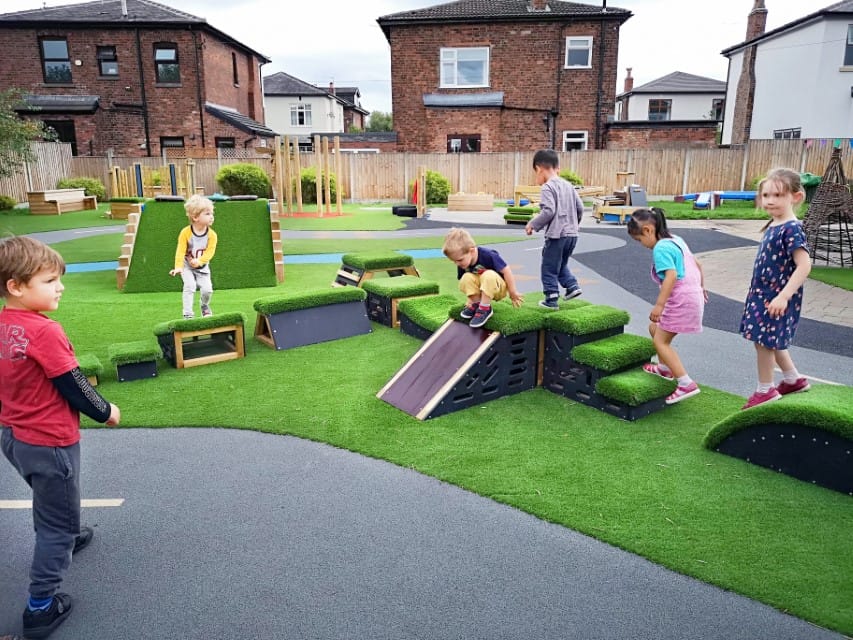
Once they get to the end of the course they can safely jump off to represent take-off. Early years settings can also benefit from playground markings which could represent a ‘flight path’ along the ground where pupils can pretend to fly along using different actions and speeds.
With support, pupils could make their own paper planes, gliders or helicopters. They could compare the shape of their paper plane to a real plane and experiment with making planes using different types of paper such as card, newspaper or brown craft paper.
Blast Off into Space!
Pentagon Play are experts at creating specific areas of learning for children to freely explore. Outdoor den spaces such as a Wigwam, Playhouse or Hill Den can be transformed into rockets or space stations.
Black or silver fabric could line the floor and be draped over the walls and planets and stars could be hung from the ceiling. A control panel made using recycled materials will grab children’s interest and recycled telescopes can help when recording findings in their space log.
Reading a variety of exciting and interesting texts such as 'Whatever Next!' by Jill Murphy or 'Man on the Moon' by Simon Bartram can offer an engaging hook into this topic.
Inspired by these texts children can pack their bags and take an imaginary journey to the moon. They could take tuns interviewing each other acting in role as astronauts and write their own accounts of a moon journey.
Using a range of outdoor instruments pupils could create a range of space sound effects. They will also enjoy singing and performing the well know counting song 'Five Little Men in a Flying Saucer.'
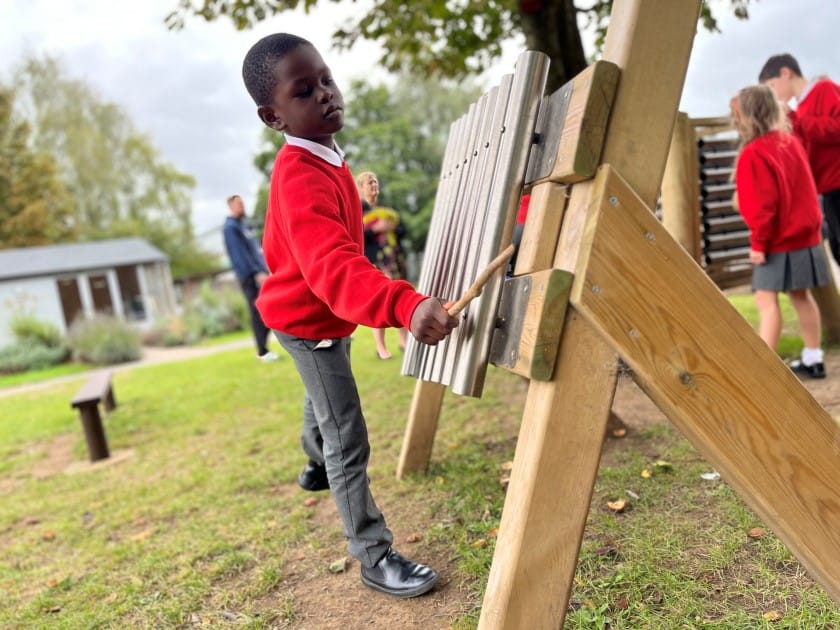
The EYFS framework encourages pupils to be able to sing a range of well-known songs and nursery rhymes.
Improve your Early Years Foundation Stage Outdoor Space Today
'Journeys and Transport' is a much loved, easily accessible early years topic of choice. There are many observational assessment opportunities as pupils play, explore and discover.
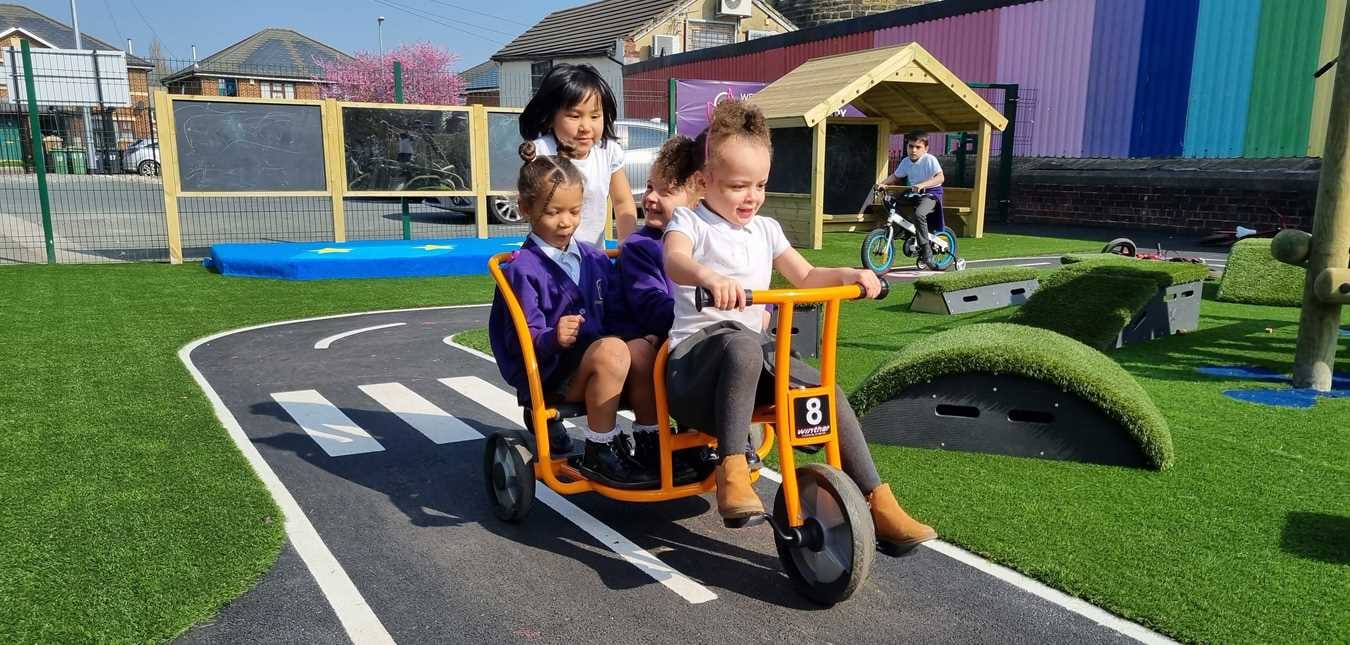
.JPG)
